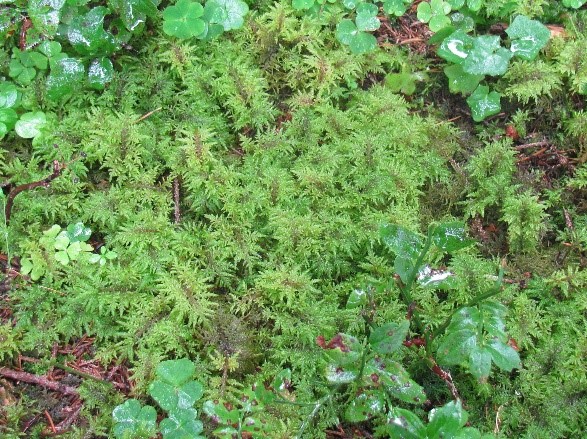Drying-rewetting cycles of bryophytes cause pulses of labile substrates leached from forest floor moss layers. In the PRIMO-project we investigate how moss leachates influence soil microbial activity and ecosystem carbon and nutrient cycling
Soil microorganisms and plants are key players in the production and breakdown of organic matter, and together control global biogeochemical cycles of carbon, nitrogen and phosphorus. TER, the Division of Terrestrial Ecosystem Research, aims to advance our fundamental understanding of how plants and soil microorganisms respond to, and in turn shape, their abiotic and biotic environment, and to determine the consequences for the functioning of Earth’s ecosystems.
Research Mission
Primarily dedicated to basic research, TER addresses pressing environmental issues, such as the impact of climate and land-use change on ecosystem functioning and the role of soils in the global carbon cycle and in food security. In doing so, we work on scales from µm (i.e. the scale at which microbes operate) to the biosphere (i.e. where plant and microbial processes become evident), and in ecosystems spanning the Arctic tundra to tropical rainforests. We integrate this scale of thinking with state-of-the-art methods, including stable isotope tracing and biomarker fingerprinting, and are developing novel approaches to estimate gross environmental processes with isotope pool dilution techniques.
We are strongly committed to conduct world-leading research in a motivating and intellectually stimulating environment, and to train our students to become independent and internationally competitive scientists who enjoy research and contribute to society as conscientious citizens.

Research Projects
PRIMO
Priming effects of moss leachates on soil organic matter dynamics
The poikilohydric life style of bryophytes implies that active phases in moist state alternate with inactive phases in desiccated state, which requires a range of physiological adaptations, like the accumulation of sugars, polyols and antioxidants. Despite such adaptations, re-wetting of desiccated mosses causes considerable leakage of intracellular metabolites due to membrane restructuring and damage of cell membranes. The ecosystem implication of these drying-rewetting cycles of mosses is that major rain events following intermittent periods of dry weather cause pulses of labile carbon-rich substrates leached from the moss layer, which are subsequently washed into the soil. The impact of this C-flush on soil microbial activity is, however, yet unknown.
In this project we address two main research questions:
(1) Does the pulse of low molecular weight organic compounds in moss leachates stimulate soil microbial activity and enhance microbial decomposition processes of soil organic matter?
(2) Does the effect of moss leachates on soil microbial activity differ between moss species and are such differences linked to the concentration of leached DOC or to the chemical quality of the organic compounds contained in moss leachates?
We investigate this by a mesocosm experiment using soils from two spruce forests to which leachates of four forest floor moss species will be added. We will determine effects on soil microbial processes, soil C and N pools and soil microbial community composition, and we will link these effects to the chemical composition of the moss leachates. The mesocosm experiment will be complemented by in-situ moss leachate collections in two spruce forests over one growing season, elucidating the relationship between moss leaching intensity and climatic conditions.
By interlinking plant physiological, soil microbiological and biogeochemical aspects, the PRIMO project will improve our understanding of the role of bryophytes in the functioning of montane forest ecosystems and thus help to refine models of C and nutrient cycling in moss-rich ecosystems under climate change.
Project duration: 2022 – 2026
Funded by the Austrian Science Fund (FWF, project nr. P35514-B)

Investigated by:
- Marianne Koranda (PI)
- Sören Risse
- Harald Zechmeister
- Wolfgang Wanek